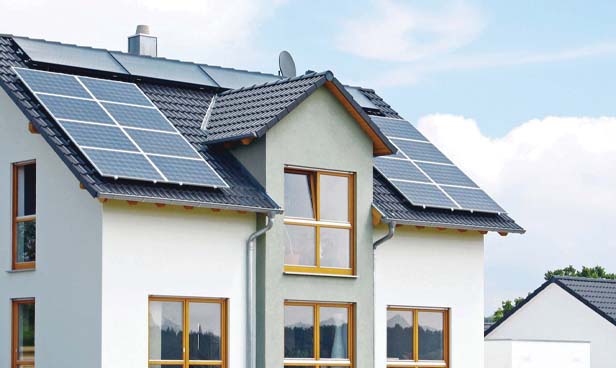
Community generation: Winning hearts and minds
5th October 2021
Delivering an Energy Strategy
5th October 2021Digitalisation of the energy sector: The future is smart!

In the past decade we have seen a number of industries revolutionised by the digitalisation of their data, processes and operations. Banking, transport, healthcare, and entertainment sectors have embraced the digital era and interest is now focused on the digitalisation of the energy sector, writes Le-ann Campbell, Associate Solicitor, Carson McDowell.
There is wide consensus that digitalisation will play an essential role in achieving the net zero targets set by many of the world’s leading economies. However, there is considerable doubt around how it will be achieved and fears that governments and industry are not moving quickly enough to establish the infrastructure and technology needed to support a smart, low carbon energy system.
Energy policy is a devolved matter in Northern Ireland, but policy, markets, systems, and infrastructure are complex and interconnected, which means that the UK Government continues to play an important role, both directly and indirectly, in shaping the local electricity and renewables sector.
July of this year saw the publication of the Smart Systems and Flexibility Plan 2021 by the UK Government’s Department for Business, Energy and Industrial Strategy (BEIS) and regulator OFGEM, alongside the UK’s first Energy Digitalisation Strategy, which set out the actions needed to transition to a fully digitised energy system.
Initiatives outlined include the standardisation of smart energy appliances and electric vehicle charge points, a clearer regulatory framework for storage and interconnectors and ideas on how to harness data to make a flexible system work.
The ambition to digitalise is clear, but as BEIS notes throughout the Strategy, the scale and speed of change required presents a number of complex challenges to be overcome, including cyber security, data protection and GDPR risks.
Increased digitalisation of the energy system will bring new cyber security threats and require proper countermeasures to be in place. Risks are expected to arise in the transition from older technologies in legacy control systems designed when cybersecurity was not part of the technical specifications for the system, potentially leading to safety issues and even blackouts.
We expect the Northern Ireland Energy Strategy, due to be published by the Department for the Economy (DfE) by the end of 2021 to address many of the same challenges. DfE has said that energy users are of central importance to the future strategy and its digital transition aims to enable and protect energy consumers. DfE has vowed to create a flexible and integrated energy system to provide value for consumers and enhance energy security.
If digitalisation and targets are to be achieved, it is vital that substantial investment is made into Northern Ireland’s electricity grid, and sooner rather than later. Evidence clearly shows that a smarter, more flexible system will utilise technologies such as energy storage and flexible demand to integrate high volumes of low carbon power, heat and transport and reach a carbon neutral future. We hope the new Energy Strategy delivers on the ambition needed coupled with appropriate investment to revolutionise the energy system in Northern Ireland.
If you have any queries relating to any of the matters mentioned in this article or for more information on how Carson McDowell can assist your business, please contact Le-ann Campbell from the Energy team.
T: +44 (0)77 8644 4039
E: le-ann.campbell@carson-mcdowell.com
W: www.carson-mcdowell.com/

